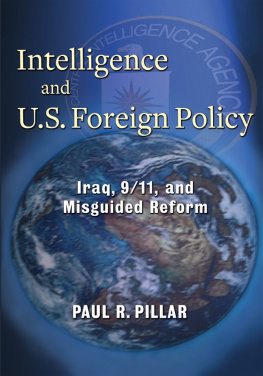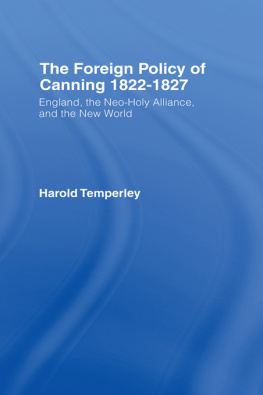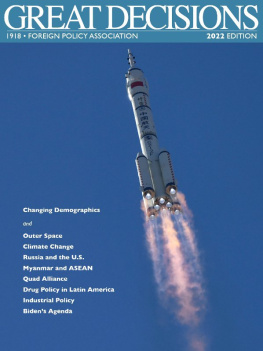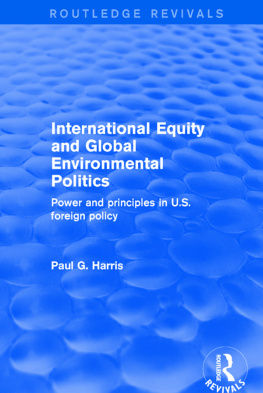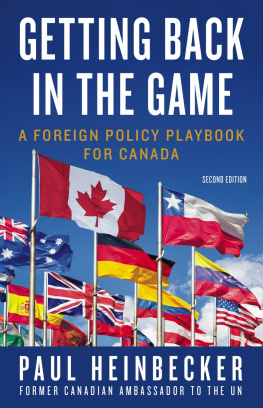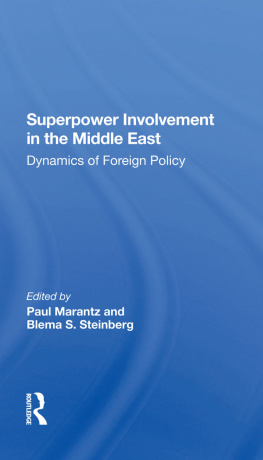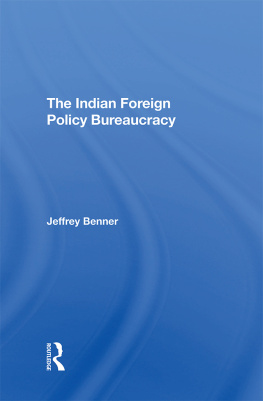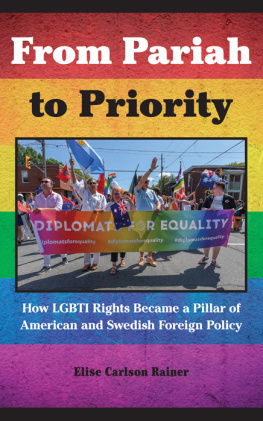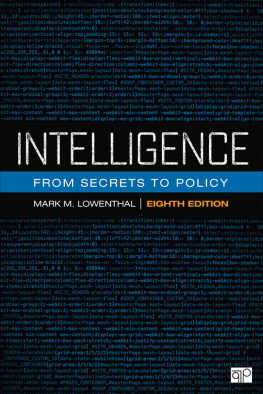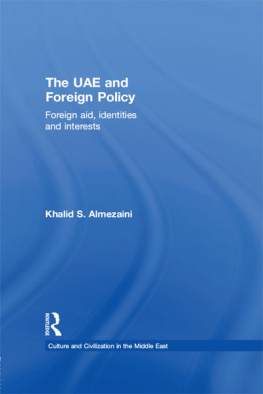Paul R. Pillar - Intelligence and U. S. Foreign Policy
Here you can read online Paul R. Pillar - Intelligence and U. S. Foreign Policy full text of the book (entire story) in english for free. Download pdf and epub, get meaning, cover and reviews about this ebook. year: 2011, publisher: Columbia University Press, genre: Politics. Description of the work, (preface) as well as reviews are available. Best literature library LitArk.com created for fans of good reading and offers a wide selection of genres:
Romance novel
Science fiction
Adventure
Detective
Science
History
Home and family
Prose
Art
Politics
Computer
Non-fiction
Religion
Business
Children
Humor
Choose a favorite category and find really read worthwhile books. Enjoy immersion in the world of imagination, feel the emotions of the characters or learn something new for yourself, make an fascinating discovery.
- Book:Intelligence and U. S. Foreign Policy
- Author:
- Publisher:Columbia University Press
- Genre:
- Year:2011
- Rating:3 / 5
- Favourites:Add to favourites
- Your mark:
- 60
- 1
- 2
- 3
- 4
- 5
Intelligence and U. S. Foreign Policy: summary, description and annotation
We offer to read an annotation, description, summary or preface (depends on what the author of the book "Intelligence and U. S. Foreign Policy" wrote himself). If you haven't found the necessary information about the book — write in the comments, we will try to find it.
Intelligence and U. S. Foreign Policy — read online for free the complete book (whole text) full work
Below is the text of the book, divided by pages. System saving the place of the last page read, allows you to conveniently read the book "Intelligence and U. S. Foreign Policy" online for free, without having to search again every time where you left off. Put a bookmark, and you can go to the page where you finished reading at any time.
Font size:
Interval:
Bookmark:
U.S. FOREIGN POLICY
 NEW YORK
NEW YORKPublishers Since 1893
New York Chichester, West Sussex
cup.columbia.edu
All rights reserved
E-ISBN 978-0-231-52780-4
Pillar, Paul R., 1947
Intelligence and U.S. Foreign Policy : Iraq, 9/11, and misguided Reform / Paul R. Pillar.
p. cm.
327.1273dc22 2010048141
CUP would be pleased to hear about your reading experience with this e-book at .
who puts her intelligence to good use
9/11 | September 11, 2001 |
9/11 Commission | National Commission on Terrorist Attacks Upon the United States |
ASAT | antisatellite |
BJP | Bharatiya Janata Party |
CBRN | chemical, biological, radiological, or nuclear |
CIA | U.S. Central Intelligence Agency |
CTC | Counterterrorist Center |
DCI | director of central intelligence |
DNI | director of national intelligence |
DRV | Democratic Republic of Vietnam |
ExComm | Executive Committee |
FAA | Federal Aviation Administration |
FBI | Federal Bureau of Investigation |
IAEA | International Atomic Energy Agency |
ICA | intelligence community assessment |
INR | Bureau of Intelligence and Research |
MACV | U.S. Military Assistance Command Vietnam |
NASA | National Aeronautics and Space Administration |
NCTC | National Counterterrorism Center |
NIC | National Intelligence Council |
NIE | national intelligence estimate |
NSA | National Security Agency |
NSC | National Security Council |
ODNI | Office of the Director of National Intelligence |
PCTEG | Policy Counter Terrorism Evaluation Group |
PNAC | Project for the New American Century |
SALT | strategic arms limitation talks |
SLBM | submarine-launched ballistic missile |
UNMOVIC | United Nations Monitoring, Verification, and Inspection Commission |
VFW | Veterans of Foreign Wars |
WMD | weapons of mass destruction |
Font size:
Interval:
Bookmark:
Similar books «Intelligence and U. S. Foreign Policy»
Look at similar books to Intelligence and U. S. Foreign Policy. We have selected literature similar in name and meaning in the hope of providing readers with more options to find new, interesting, not yet read works.
Discussion, reviews of the book Intelligence and U. S. Foreign Policy and just readers' own opinions. Leave your comments, write what you think about the work, its meaning or the main characters. Specify what exactly you liked and what you didn't like, and why you think so.

